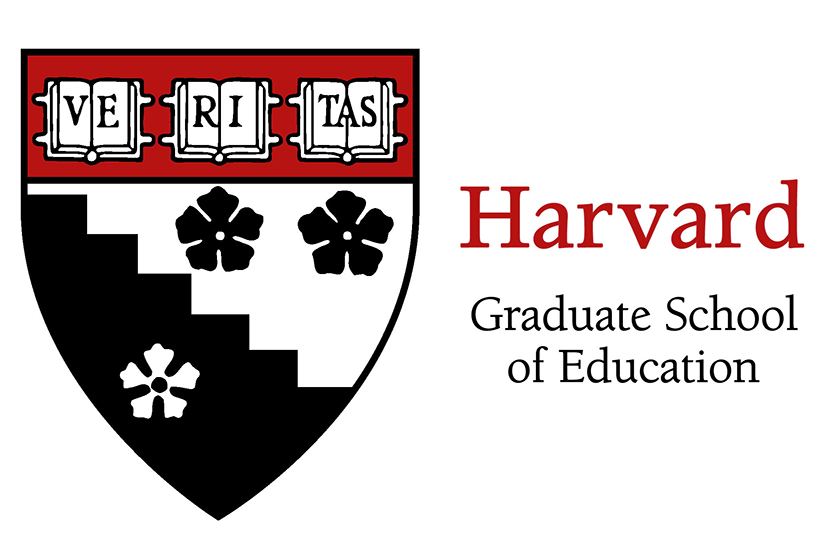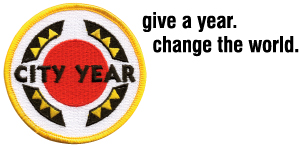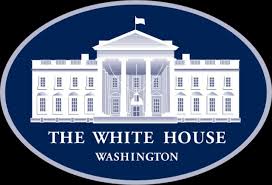Excerpt from Chapter 18: Harvard
 Friday, December 5, 2014 at 2:16PM
Friday, December 5, 2014 at 2:16PM “Ma, this is Douglas! I was thinking about going to graduate school to get my master’s degree in education. I want to help other kids and families that live in situations like how we grew up . . . and the number one graduate school for education administration in America is at Harvard. Do you think I should apply?”
 Mom broke out in laughter. “Douglas, why not Harvard, why not you? If they say no, you will be right where you are today, and that is not bad at all. But what if they say yes! If God put this thought in your heart, then follow through by at least applying.”
Mom broke out in laughter. “Douglas, why not Harvard, why not you? If they say no, you will be right where you are today, and that is not bad at all. But what if they say yes! If God put this thought in your heart, then follow through by at least applying.”
That was all the advice I needed to hear. Every time I thought about applying, my chest pounded, and my body tensed up with enthusiasm . . . I faced the possibility of attending an Ivy League school. On a whim one morning, and because I lived so close, I took the T to Harvard Square to walk the campus and pick up more information from the admissions department. The T conductor’s voice belted over the speaker. “Haaaaaavard Square.” I jumped from my seat, each movement like an out-of-body experience. I stepped off the train and climbed the stairs to Harvard Square. With each stride, I remembered a bit of my journey up to that point in my life. Everything went in slow motion, and the movie in my mind allowed for the right timing and soundtrack to accompany my ascension.
The first step symbolized my struggle of growing up in poverty; the next signified overcoming the absence of a father or father-like figure in my life; the next was seeing my mother get mistreated as a housekeeper; the next was the paralyzing fear of being bullied in elementary school; the next step was my uncontrollable stuttering impediment developed through the alienation and condescending remarks of my third grade teacher; the next was for my Little League assistant coach, who told me that I suffered from delusions of grandeur; the next was former friends that discounted my gifts; the next was my high school guidance counselor, who told me I was not college material; and the last step was for Diane at John Hancock. With each stair I climbed, I remembered how I overcame that obstacle, ultimately arriving at the Harvard Yard. Mama Luff’s words rang through my mind as I walked the uneven cobblestone sidewalks. “If not me, then who? If not now, when?”
The doubt and insecurity that I’d felt when my third grade teacher asked me to read out loud among my peers paralyzed me briefly as I reached out to the double doors of the Education building, but the momentum of graduating from Northeastern and my visit to the White House pushed me through. A kind voice behind a plain cubicle-like secretary desk greeted me immediately. “Hello, welcome to the Graduate School of Education. How can I help you?” I froze, overwhelmed by Harvard and tradition, but it only lasted a second. “Yes, hi, my name is Doug . . . Doug Luffborough. I would like some information about the Ed school, and I’l like to pick up an application, please.”
To my surprise, the secretary did not ask many any other qualifying questions: my GPA in undergrad, what qualified me to apply, or what my parents did for a living were non-issues in that conversation. She simply went to the back of the room and returned with a full application packet.
Without realizing it, I blurted out my next request. “I’m sorry, but can I have two applications? I have someone else that I need to get one for as well.” I thought of my brother, Darrell. He was only one year younger than I was and had done well in high school and college. Out of the two of us, Darrell was stronger than I was academically, so I wanted to include him as well.
Without balking, the secretary agreed, and I left the office with two applications, guarding them like a bank security guard. The glossy printed covers had embossed lettering that spelled out Harvard University Graduate School of Education: HUGSE. Reading the front made a smile spread across my face uncontrollably. The thought of both of us even applying thrilled me, and I felt a rush of excitement in my heart, like fizzing soda and sunshine. If anyone had overcome major obstacles to go to Harvard, it was certainly Doug and Darrell Luffborough.
That weekend, I went to Worcester to see my mother and personally give Darrell his application. I felt nervous talking to him about it, because growing up, we used to tease each other with names like stupid-ass and dummy, which became his pseudonyms for my real name. A part of me felt that Darrell had a better chance than I did of getting into HUGSE, but I wanted to see at least one of us get in to the school. While the entire family was hanging out in the living room and Darrell was watching ESPN, I leaned over his shoulder and asked him to join me in the kitchen in the back part of our apartment. As he entered the kitchen, I pulled out a chair and asked him to sit down. Hovering over him, I said, “Darrell, sit down—I need to talk to you about something,” I said. “You may think I’m crazy, but I think we should both go back to school—graduate school. I did the research, and the number one school of education in the nation is at Harvard. I picked up two applications, one for you and one for me, and I think you should apply with me.”
“Harvard?” Darrell burst out laughing. “Harvard! We can’t get into that school! You are crazy, Douglas.” For a moment, I laughed with him in agreement to his response, but then I sharply switched to stating my case about why we should apply.
I squared my shoulders, determined to get his attention. “Look, I know I’m not Einstein, but Darrell, I believe that you could get in, and if you did, it would be a win for you, for our family, for Ma, and for our community. How many gang-involved, formerly-homeless, African-American males from Tatnuck Square do you know who have gone to Harvard? Exactly. Come on! Plus, if we don’t get in, we will be just where we are right now, and that’s not too bad, is it? We are already college graduates, so what do we have to lose? Nothing!” I was fired up, ready to fight him over it; the winner would choose.
We argued back and forth, escalating until Ma stepped in. “Lord, have mercy! My boys are going to kill each other over applying to Harvard! We really have come far as a family, but I want both of you to just calm down. Douglas, you have done your part. You gave Darrell the application, and it is up to him if he wants to apply . . . we support you, too, if you want to apply. Considering the road less travelled, Harvard is new territory for us, but, God is able!” After Ma spoke, our confrontation ended.
Over the next couple of weeks, I worked daily on the application and called my brother to see how he was doing with the process, but we never went into too many details about it. In addition to sharing that I’d overcome gang involvement, low expectations, and homelessness, I also shared my graduation experience at Northeastern and our visit to the White House. I felt that if anybody had used education as a platform for success, it was Darrell and me. Also, my experience at City Year gave me a passion for educating children within an urban context because I had lived it.
As the deadline approached, I tapped in to some of my mentors for feedback on how I could strengthen my application. Just one day before the deadline, Darrell and I completed our applications, and together we went to HUGSE and dropped them off. Our shoulders rose up, our heads lifted with a big sense of accomplishment, and Darrell and I decided to celebrate by going out to eat in Harvard Square. We had a little celebration but knew that even though we had done our parts, the rest was out of our hands. Because I feared friends would discourage me, similar to how my third grade teacher had, I did not share my application process with them.
Months passed without incident, and on April Fools’ Day in 1996, I received a large envelope in my mailbox, and the return address said: Harvard Graduate School of Education. I remembered similar large envelopes showing up when I was in high school and applying to college, and it meant one thing: I must have gotten in. And despite this knowledge, I couldn’t find the courage to rip the envelope open to see for myself. I set the envelope on the kitchen table and paced back and forth until I thought my heart might beat out of my chest. I grabbed the envelope and ripped it open.
“Congratulations! You have been accepted into the Harvard University Graduate School of Education.” I rubbed my eyes to make sure I was seeing clearly, and I read the words over and over again. Like a leaky faucet gasket, ready to explode, I burst into tears of joy, covering my face with my hands as saliva filled my mouth and leaked onto my hands.
I panted, barely uttering my words. “Thank you, God, thank you, God, we did it!” At that moment, I knew it was God’s will for my life, that it had been we all along. I went to my room, looked at the infamous boardwalk picture, and saw my silhouette on the other side of the mountain. I stood there staring at the picture, talking to Jesus and wailing until my eyes were bloodshot red, irritated, and sore from rubbing them. Not only was I college material, but I had been admitted into the number one Ivy League Graduate School of Education in the world. I had to compose myself because I knew I had one very important phone call to make.
“Hello? Darrell, this is Douglas. Did you get anything in the mail today?” My voice was still recovering from the weeping, but I was full of joy. “Yes,” he said, not giving off any indication of the outcome. “Well, what did they say?” Instead of answering my question, he fired one back at me. “Did you find out anything?” Now it was my turn. “Darrell, did you get a small envelope or a large envelope?”
The pause on the line was almost imperceptible. “I got . . . I got a large envelope.” His voice was confident, certain, happy. I went numb; I was beside myself with disbelief of what we were able to pull off. Not missing a beat, I replied.
“I did too!” I wailed again like I had done just twenty minutes before. Both of us yelled and screamed into the phone as if we had won the lottery. Between the two of us, we recited every happy proverb we could remember. The one repeated most often, above the shouting and whooping, was, “All things are possible for those who believe.”
Order more copies of Watch Me Rise on Amazon and give them out as wonderful holiday gifts to your friends and family!




